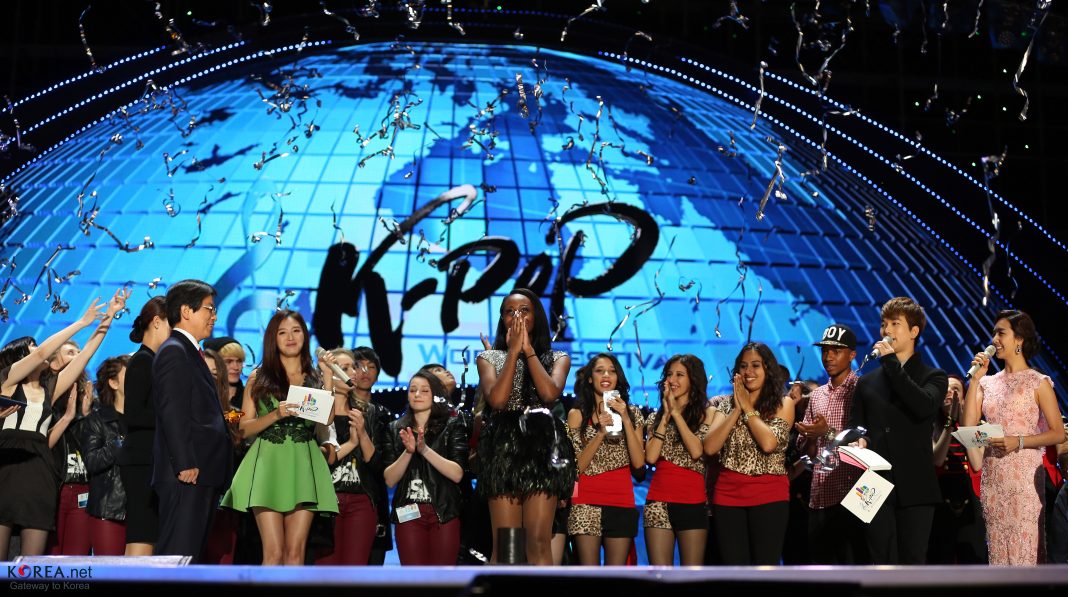Originating from South Korea, K-pop has transcended its national boundaries to become a global cultural phenomenon. Characterized by its addictive melodies, high-energy performances, and visually stunning music videos, K-pop has garnered a massive international fanbase. Beyond its musical allure, K-pop has significantly influenced global fashion trends, language learning, and social issues, marking its indelible impact on global music and culture.
Rise of K-pop on the Global Stage
Historical Roots and Evolution: K-pop’s roots can be traced back to the early 90s with the debut of bands like Seo Taiji and Boys, whose fusion of Western pop, hip-hop, and Korean music laid the foundation for modern K-pop.
Hallyu Wave: The term “Hallyu” or “Korean Wave” refers to the global popularity of South Korean culture, with K-pop at the forefront. This wave has seen exponential growth, particularly with the advent of social media platforms, allowing K-pop to reach audiences worldwide.
Musical Innovation and Collaboration
Genre Blending: K-pop stands out for its unique blend of musical genres, incorporating elements of pop, hip-hop, EDM, R&B, and more, creating a diverse and dynamic musical landscape.
International Collaborations: Collaborations between K-pop artists and Western musicians have become more common, bridging cultural gaps and bringing new sounds to the global music scene.
Fashion and Aesthetics
Trendsetting: K-pop idols are renowned for their fashion-forward styles, often setting trends that resonate with global audiences. From street style to haute couture, K-pop influences are evident in global fashion trends.
Beauty Standards and Products: The K-pop industry’s emphasis on aesthetics has popularized Korean beauty standards and products worldwide, contributing to the global success of the K-beauty industry.
Language and Cultural Exchange
Language Learning: The global K-pop fandom has sparked interest in learning the Korean language, with fans eager to understand song lyrics and engage with Korean culture more deeply.
Cultural Diplomacy: K-pop acts as a form of cultural diplomacy, promoting Korean culture globally and fostering cross-cultural exchanges.
Impact on Social Issues
Social Media and Fandom: K-pop fans utilize social media to mobilize support for social and political causes, demonstrating the power of fandom in effecting change.
Mental Health Awareness: The K-pop industry’s discussion of mental health challenges has contributed to a broader conversation on the topic, encouraging openness and support.
Challenges and Criticisms
Despite its global success, the K-pop industry faces criticisms, including concerns over the intense training and pressure faced by idols, issues of cultural appropriation, and the sustainability of the idol system. These challenges prompt ongoing discussions about the future of K-pop and its impact on artists and fans alike.
The Future of K-pop
As K-pop continues to evolve, it is likely to further influence global music, fashion, and culture, breaking new ground and challenging conventional boundaries. Its ability to adapt, innovate, and engage with fans on a global scale suggests that K-pop’s influence will endure and expand, contributing to a more interconnected and culturally diverse global community.
Conclusion
The global influence of K-pop extends far beyond music, shaping fashion, language learning, and social activism. As a vibrant and dynamic force, K-pop continues to captivate and inspire a worldwide audience, embodying the power of music to transcend cultural barriers and bring people together. Its ongoing evolution promises to keep K-pop at the forefront of global culture, marking its place in the annals of music history.

